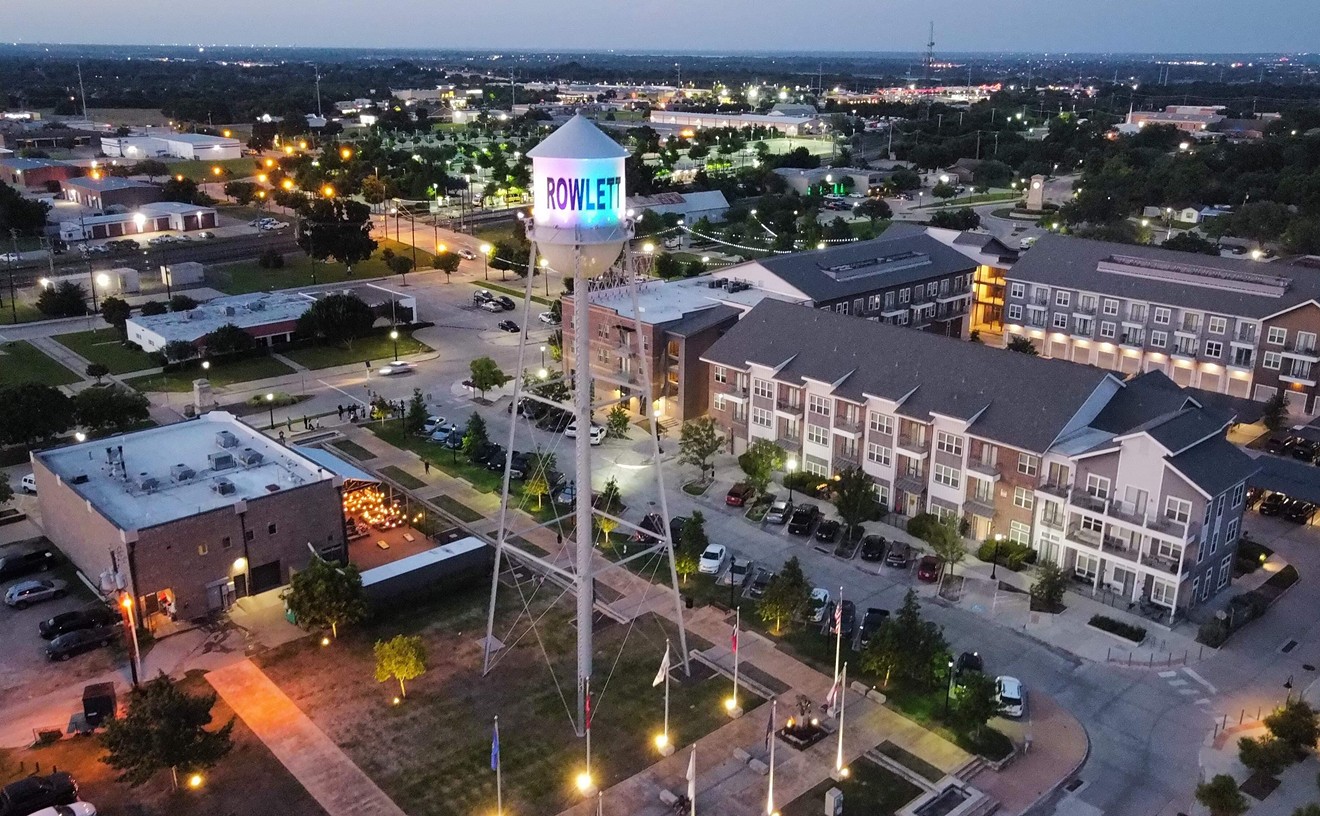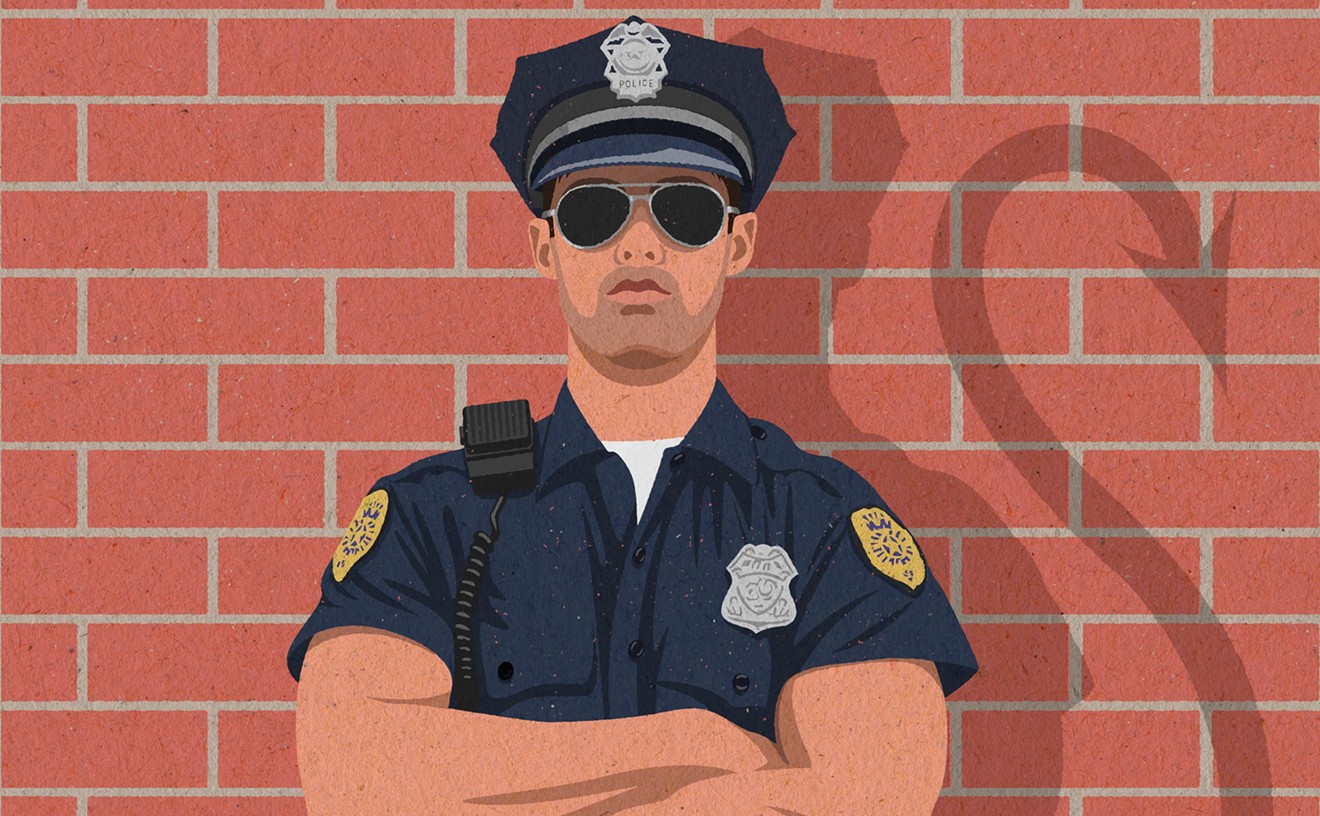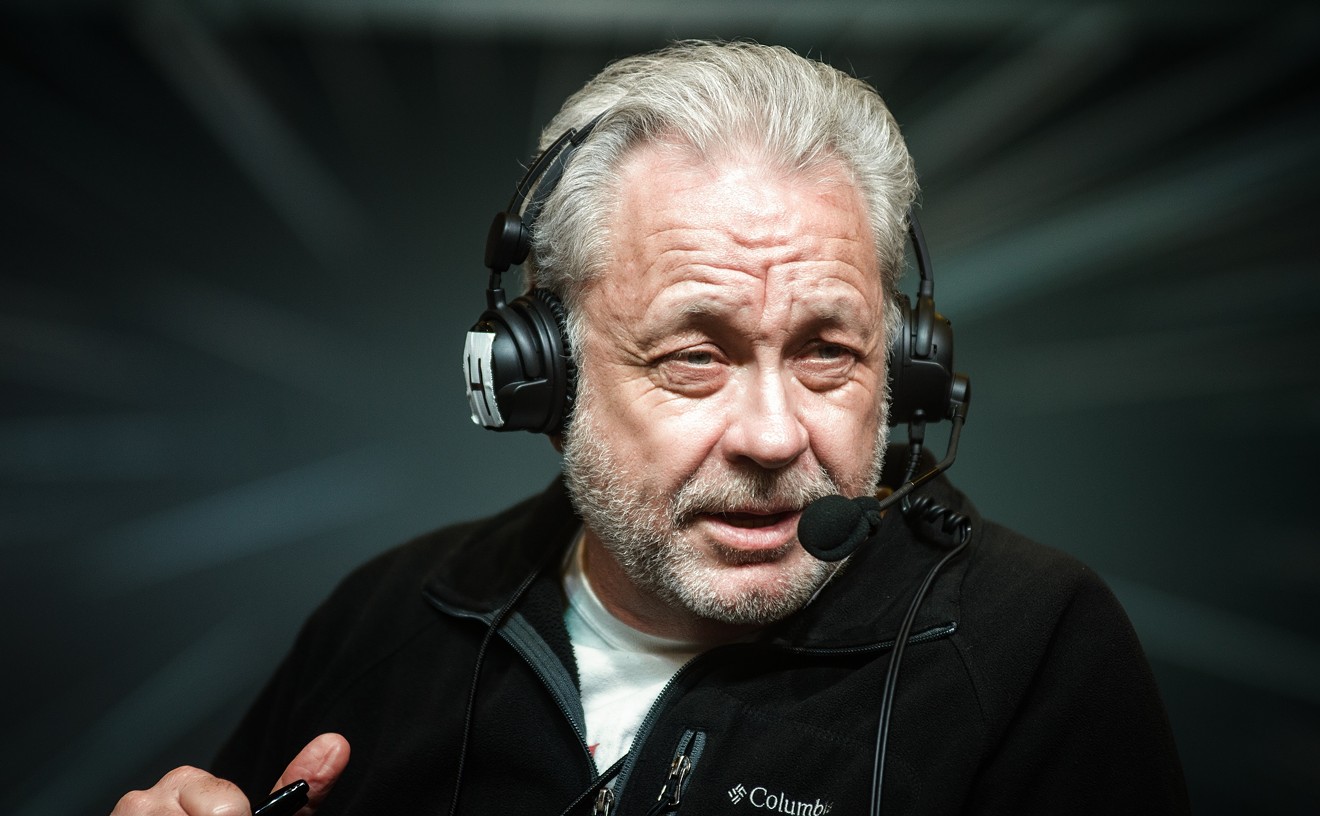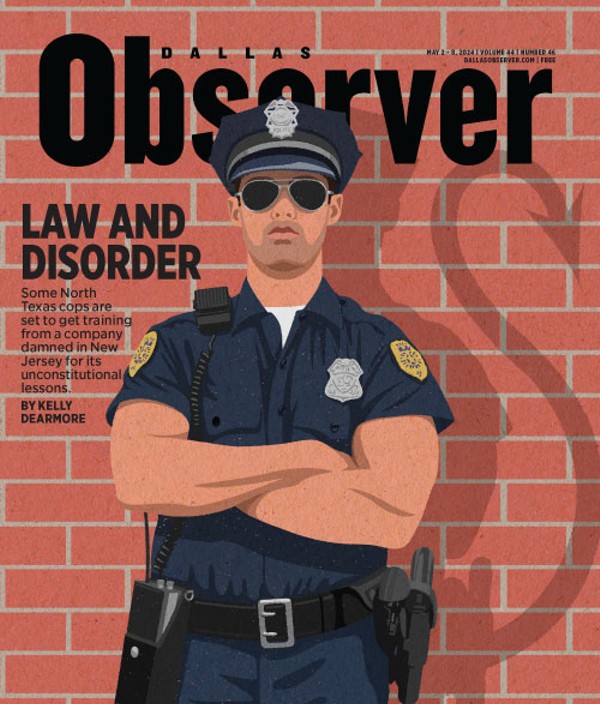In East Dallas, at the Betwixt and Between Pagan Community Center, they've got a gravel parking lot. And a shaggy dog named Gaea. And some mismatched couches. There aren't any self-propelling broomsticks or resident poltergeists. The realities of practicing magic are just not, well, all that magical. Especially when headquarters is a few hundred square feet of space in an industrial-looking strip shopping center at the end of a dead-end street. Or maybe it just depends on how you look at it. With a course called the academia sophiae, the community center is imbuing the next generation of magical practitioners with the tools they need to continue their craft, massive Gothic castle or not. Oh, and there are just two kids in the whole class, and they just happen to be the offspring of the center's co-directors.
The students are Caleb and Ryan Landrith, two unabashedly inquisitive teenagers who scribble notes as their instructor, Shawn Richburg, delivers a lesson on the basic axioms of magical practice. They're talking about the law of relative truth, having just finished a couple of remarks about the philosophy of Carl Jung. Wearing a black beret and talking animatedly with a dry-erase marker in his hand, Richburg explains the concept.
"Every fact is true in one sense," he says, "false in one sense and meaningless in another." They'll go on to discuss a little Kant, dabble in Taoism and explore some basic tenets of physics, all in a little under two hours. This is, Richburg says later, as close to pagan Sunday school as you get.
"It certainly isn't anything like the Roman Catholic Church," says Richburg of the varying pagan attitudes toward dogma and the problems presented when it comes time to educate young pagans about their religion--or belief system, or spirituality, or whatever you want to call it. Roughly defined, pagans worship nature-based deities like tree and water gods and goddesses, follow basic ethical standards and believe in reincarnation. After that, it's anybody's guess. Richburg teaches his young scholars to just figure out what works for them. "Some magicians are more about magic being a practical set of techniques. Postmodern magic is filled with that particular type of ideology."
The word "postmodern" probably comes up more often in the academia sophiae than in a lot of liberal arts college classrooms. Despite its small enrollment, the course includes quizzes and reading work, not just a Saturday afternoon spent waxing intellectual. Besides, says Angela Landrith, Betwixt and Between's co-director and stepmother to Caleb and Ryan, "Not all pagan youth would be inclined to participate in a class that requires this level of study and commitment."
Ryan, clothed in the traditional garb of a skater kid, from his "Everybody Loves Mushrooms" T-shirt to big-soled skate shoes, doesn't have any problem with the heavy philosophical base. There's also a little bit of woozy New Age sensibility sprinkled in for good measure, like the law of connection.
"That means that everything has at least one thing in common," says Ryan, tapping his spiral notebook on the arm of the shabby recliner he's using as a desk. Richburg doesn't mind the small class, saying that if it was any larger, he wouldn't have as much freedom with the curricula. If it seems like the subject matter of the academia sophiae is a little scattered, consider this: Humans have been practicing magic in one form or another, from shamanism to voodoo, practically since we started walking upright. Richburg teaches the foundations of philosophy, religion and spirituality from all corners of the earth so that his students understand the full spectrum of magical theory. Parents want their kids to make informed decisions about paganism, Richburg says.
"They're children of parents who are very open-minded," Richburg says. But some pagan parents have a hard time explaining their own beliefs, he says, much less passing them on to their children. That's where the academia sophiae comes in. "Most of the people [at Betwixt and Between] don't see children as mindless cattle. They are individuals that are meant to be encouraged to grow up the way they're meant to, not the way we want them to."
Richburg says his class "really encourages the tough questions," but what is perhaps the toughest question of all gets a very vague answer. You might spend hours reading scientific, philosophical and magical texts, developing rituals and invoking spiritual powers, but it all comes down to this: Is magic real? The answer lies in--wait for it--the green unicorn.
"Is a thought of a green unicorn a real thought?" muses Richburg. "Yes...Is a green unicorn real? No. Things that are not seen are not necessarily unimportant." What should be considered instead, says the magic instructor, are the effects that belief in magic has on the world around us. Magical thoughts and rituals, he says, "eventually cause ripples in the affairs of men and reality is formed from that."
It all ties back to another axiom of magic, the law of pragmatism. If it works, says the law, then it is true. If magic gets results for its practitioners, then magic is real, regardless of whether it's actually, you know, real. This is the current trend in analyzing magical realities, Richburg says, because it fits in with modern society's acceptance of psychology as a science. "There are end results [of magical activities] that affect the magician and oftentimes the world around him or her."
Caleb and Ryan Landrith will eventually learn how to develop their own rites, rituals and spells to aid in their everyday activities. They might perform banishing rituals, a kind of meditative, centering activity that increases awareness. This will put them more in touch with the larger spiritual universe, Richburg says, which can influence everything from your day at work to your love life. Caleb, Ryan and other magicians shouldn't expect to necessarily move mountains with each spell, however.
"You obviously do [magic] in order to get results, or you wouldn't do it," Richburg says. But obsession with outcome can be detrimental. "If one desires results overmuch, then that actually hinders your ability to produce them."
There is a sense of encouragement that comes from even a small class like the academia sophiae. Just sitting in the room with Caleb, Ryan and Shawn Richburg poking fun at each other, referencing magical societies of years past and making inside magical jokes about "muggles" (from the Harry Potter novels, it means someone who's not magical), you get the feeling that they're experiencing a camaraderie it'd be hard to find for pagans elsewhere in the community. Angela Landrith says the class is a place her kids can feel safe.
"Our children face...a lack of understanding about their faith," she says. "Some of our families feel that they have to keep their faith a secret...Offering classes and activities allows our families to find a place they can feel safe in their practice."










